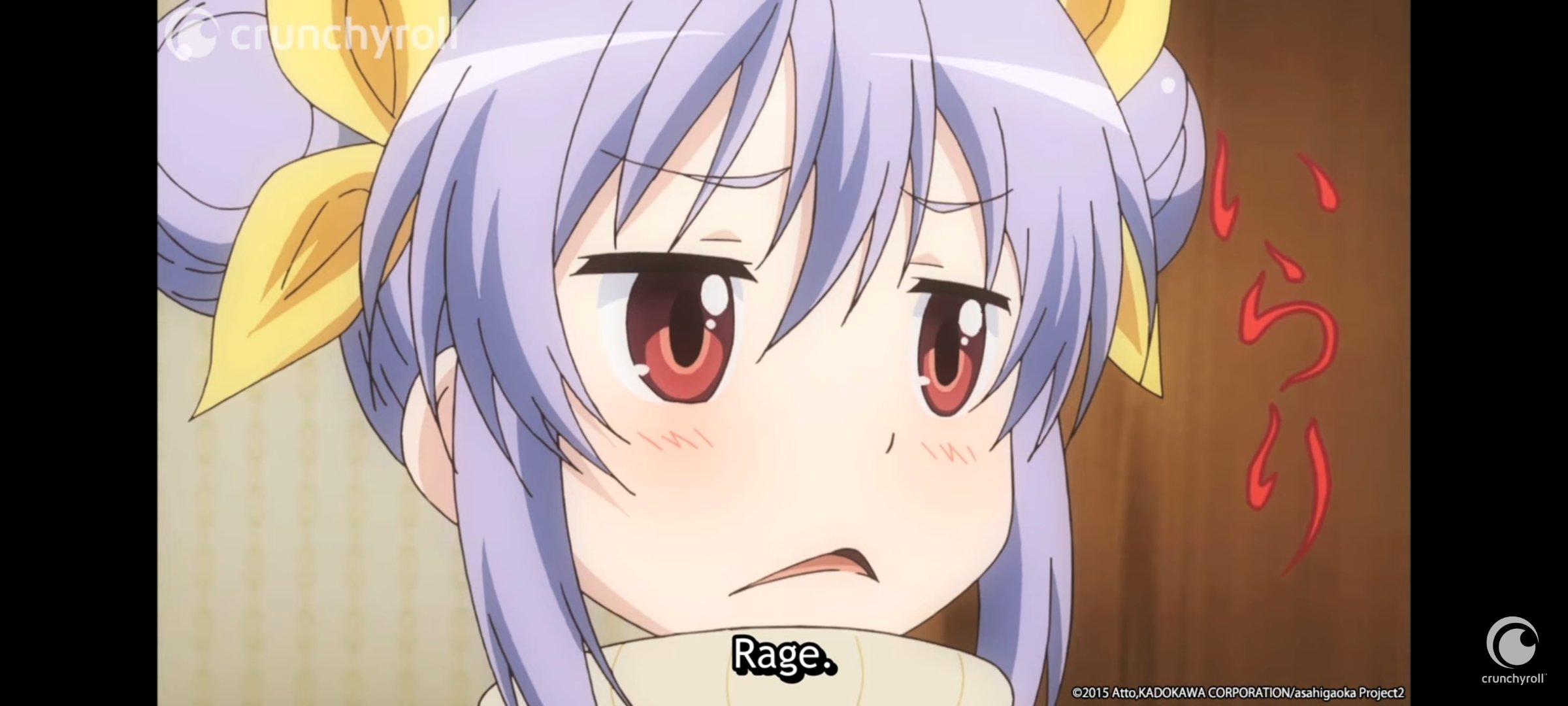For additional context it is from the anime 「のんのんびより」

Slang for イラッなり (iranari) which means “Annoyed”
I think this thread is discussing this same context.
The closest I could find that seems like it may be relevant given the context was this entry for いらいら, but I don’t think that’s correct either tbh.
While there seems to be a more specific explanation in this case, I believe it’s fairly common that for onomatopoeic or mimetic words with repeating syllables the last one can be replaced by り、ん or something else. E.g. ぺたぺた、ぺたり、ぺたん、ぺたんこ. So your result is close enough I’d say.
deleted by creator
I know what is says since I’ve learned ひらがな and カタカナ
I just needed to know the definition of the word
Google lens translates a picture of your comment to "“hiragana” and “katakana” from Japanese

